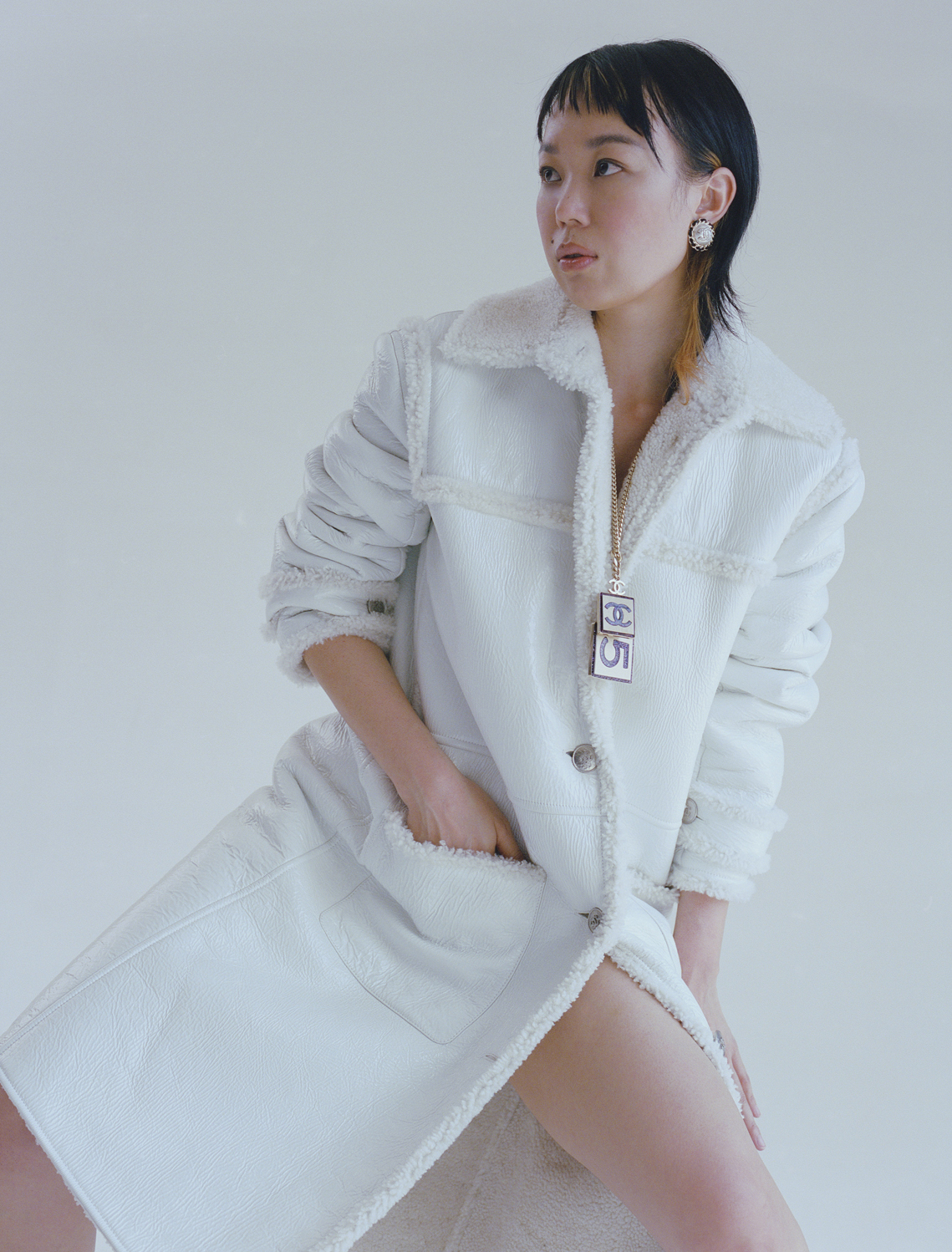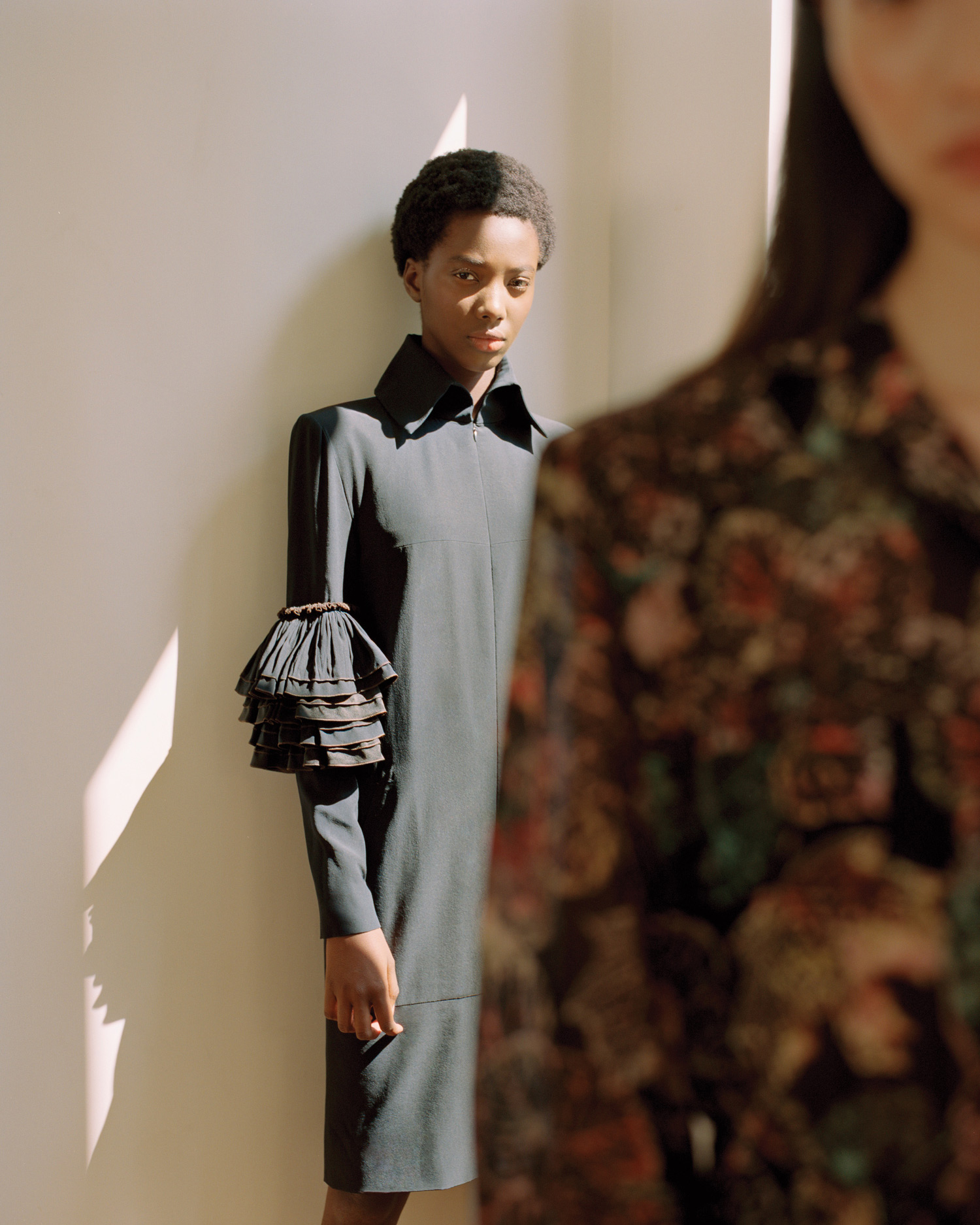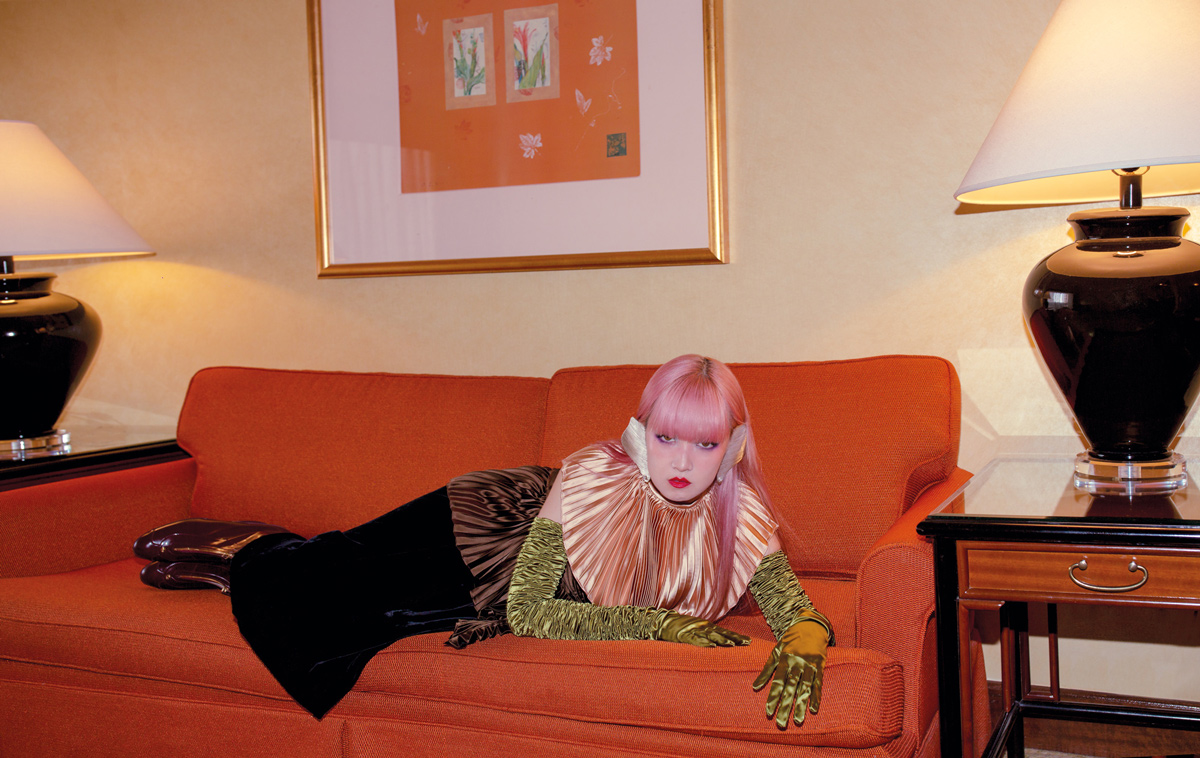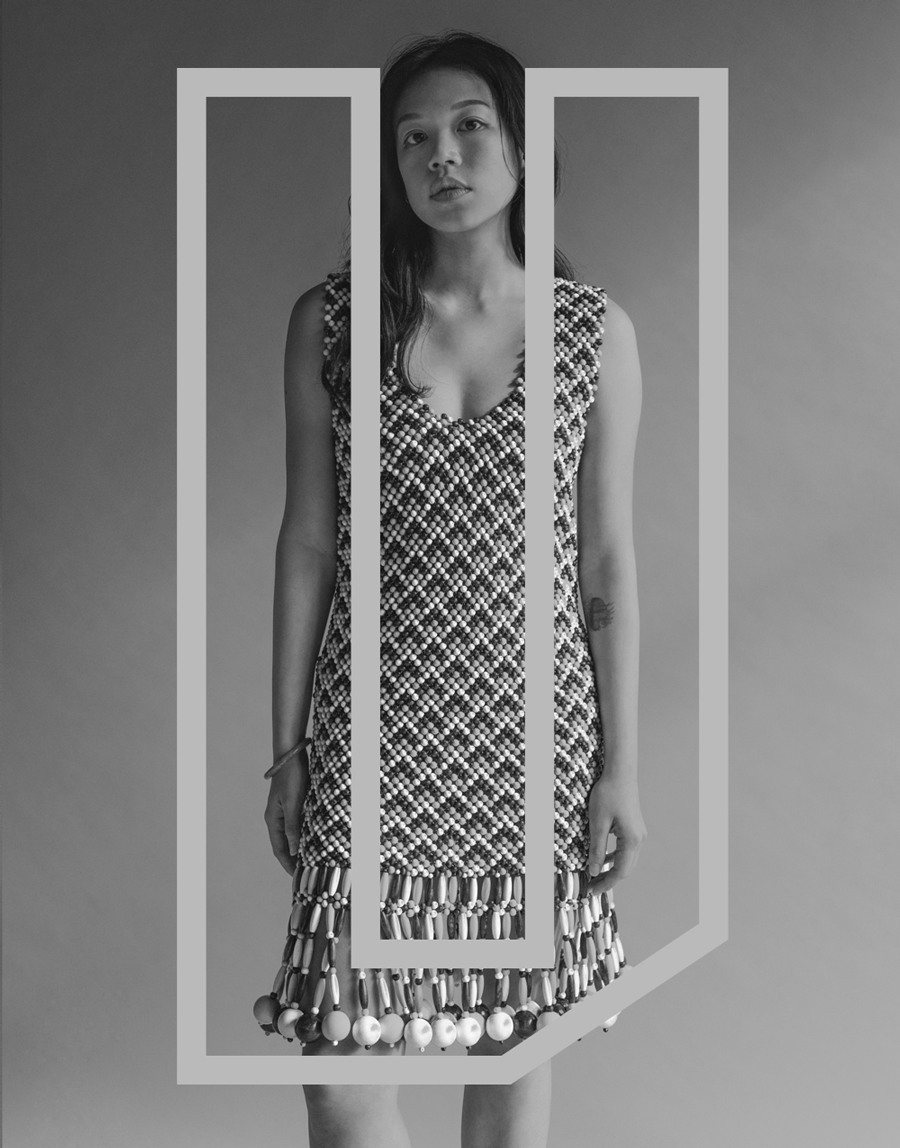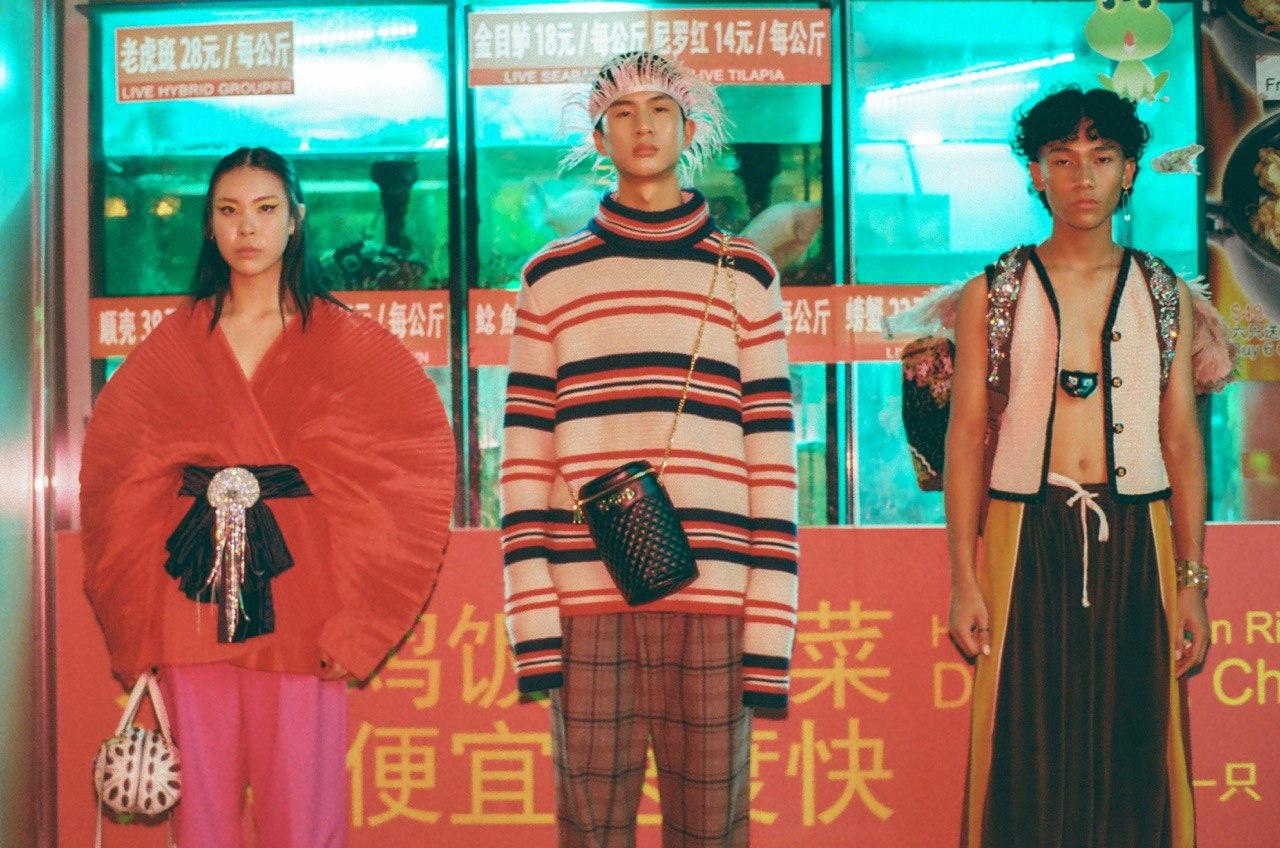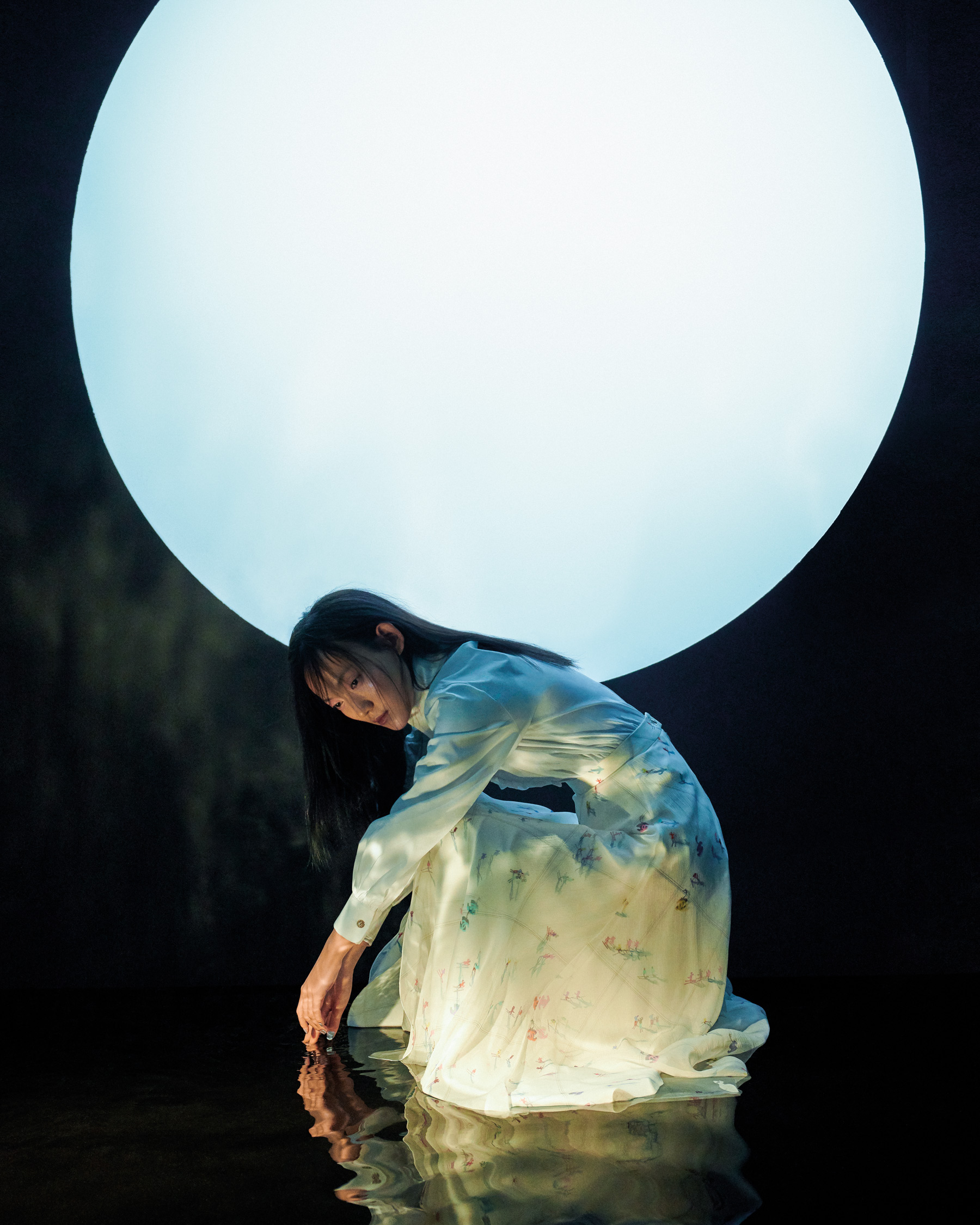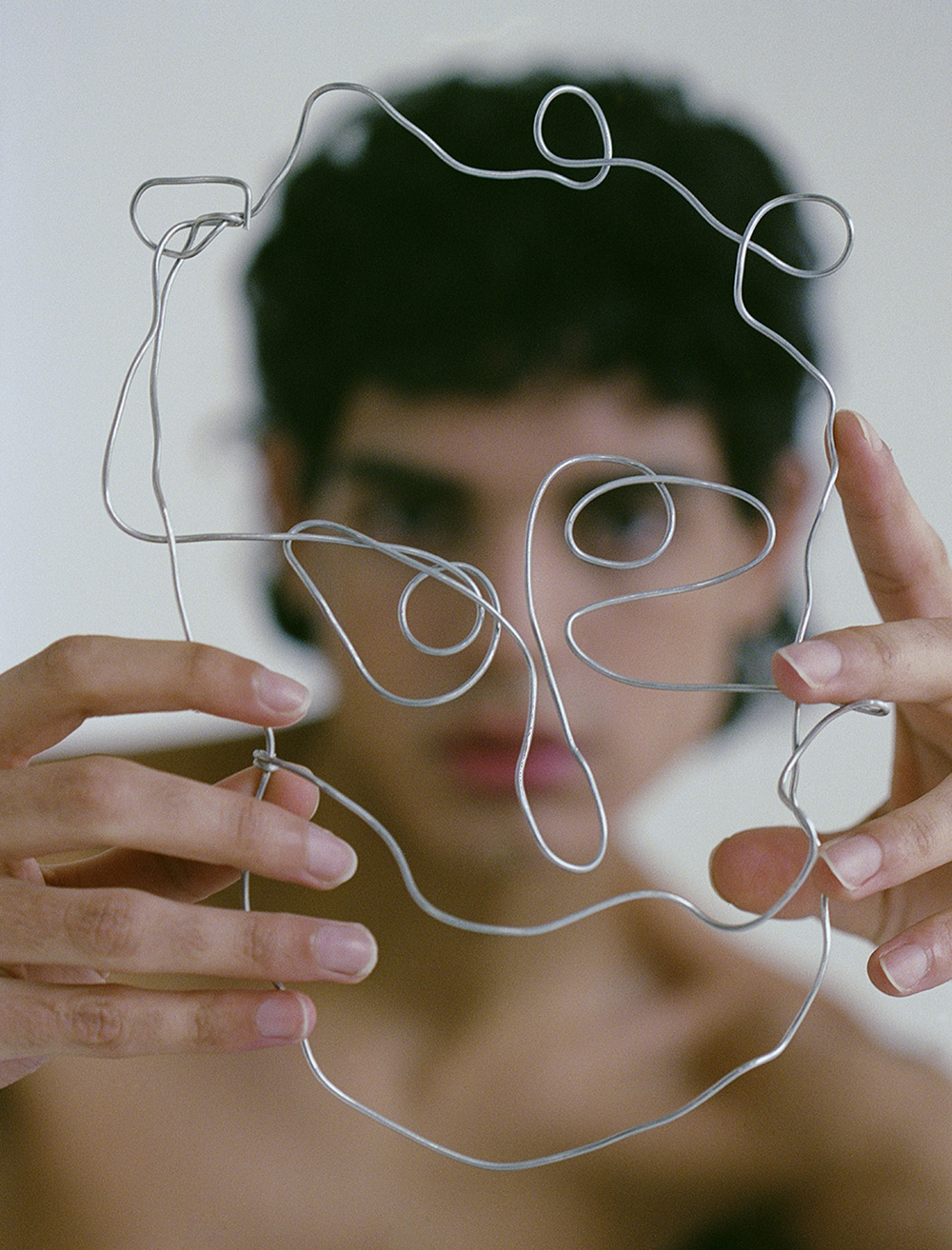
photography ALYONA KUZMINA
styling JUNGLE LIN
art direction CLIFFORD LOH
hair KAYO FUJITA
makeup YUKO KAWASHIMA
set design RYAN MILLER
edit ARTEMIY REPIN
video NADIA BEDZHANOVA
sound OLGA MAXIMOVA (OMMA)
words by AMANDA LEE KOE
featuring Chanel Fall/ Winter 2021
“Tell me your dream job,” a woman with pupil-enlarging contact lenses says to Amanda, who is unwittingly passing through a recruitment fair. Cutting through this concourse was the fastest way to her destination, but Amanda didn’t expect to be waylaid by a huge teddy bear mascot in a graduate’s robe, waving his arms up and down like a flightless bird simulating airlift. Does the person inside get hourly breaks to hydrate? Has anyone died of heat stroke inside a heavily-furred costume? Because Amanda slows down while observing the mascot, the woman now thinks she’s interested in “planning for the future.” Amanda is seventeen or eighteen, and she’s doubtful if the woman’s idea of a future tallies with her own. She finds it hard to believe that she has much of a future, but she’s not sure why it seems hopeless. Though she has not yet begun to understand how things work, Amanda feels it in her bones: how can a queer Singaporean technically be invited to consider any of their dreams when they’re fundamentally still criminals in this place? Don’t worry baby, even if you can’t have a life, you can still have a career! Amanda doesn’t want anything else at the moment other than to feel free, but what does that mean? Right now she’s just a sheltered girl in a stiff world who has never blown bubble gum before and is vaguely fearful of the word “Marxist.” Cheap pumps pinch the woman’s feet. “How about you,” Amanda wants to ask, “what is your dream job?” But given that Amanda is still a girl and the woman is already an adult, that might come across as cruel. The woman waits for her answer. Amanda doesn’t think she will ever get to be a real author, so she tells the woman half serious, halffacetious: “I want to be a courtesan.” Unfortunately, the woman is unable to advise her in this regard.
*
So you want to be an author?” The minister nods at his own question. “What are you going to write about?” Again he goes on before Amanda answers. “Let’s hope you put Singapore on the map!” They serve champagne after the scholarship ceremony. Maybe the cork was popped too early because by the time a flute gets passed around to Amanda, there are hardly any bubbles left. The staffer who introduced Amanda to the minister forgets her name but remembers the logistics: where she’s going (New York), what’s she studying (writing). The minister tells Amanda that when he was her age, he studied on the east coast too, in Boston. She asks: “What do you miss most about your time in Boston?” He smiles wistfully as he tells her that what he misses most is the motorcycle he had back in college. Riding down long stretches of road, feeling the wind on his skin. “If you miss it so much,” Amanda says, “why don’t you get a motorcycle here?” He gives her an incredulous look and lowers his voice. “I can’t quite do that now, can I?” The minister has a special way of speaking in questions that aren’t really questions. Amanda tries it out, too: “Why not?” He smiles at her like she has absolutely no idea what she’s talking about. The wistful slack of his mouth is beginning to harden into condescension. There’s an opportunity to walk away here, but Amanda wants the minister to know she knows exactly what she’s talking about. She raises her glass: “To the freedom to ride.” He doesn’t clink glasses with her. “Riding is dangerous,” the minister says. “Did you know that motorcyclists are 28 times more likely than passenger vehicle occupants to die in a car crash?” Suddenly Amanda feels sorry for the minister. She doesn’t have more to say, so she finishes her champagne in one breath, without breaking eye contact with him. The minister raises an eyebrow and makes it appears as if he is looking for someone—“There she is, the ambassador!” —as he excuses himself away from Amanda.
*
It takes years, but to her own surprise, Amanda survives into adulthood and becomes an author. When she sees her novel as a physical object on a shelf at The Strand, under Kafka, beside Kipling, it is almost too much to bear. She steps out onto East 12th and Broadway, takes a breath of the crisp autumn air. Back in Singapore, Amanda has to fill out a tax form on a government website. The closest occupational category she can find for herself is “journalist” or “copywriter.” She is wilfully tempted to go with “dentist.” If I can’t be recorded as I am, Amanda throws a hissy fit in her own head, then I refuse to dance in your charade! Less than a minute later, a dead-eyed Amanda chickens out by selecting “journalist” because she doesn’t want to mess with the form—what if there are repercussions to masquerading as a dentist that she can’t afford to pay? How will she resist the urge to explain that it was not an erroneous slip of the finger, the self-miscategorisation was pointed and deliberate? And, let’s be real, even if Amanda were to explain herself in earnest detail, would any Internal Revenue Authority tax officer pause to comprehend the motivation behind this action? If it can’t go on a form, it’s beyond their pay grade. They’re just trying to get through the tedium of a work day, too. Does everyday noncompliance become abstract vainglory when it can’t be understood? Is muted insolence just an idle pantomime if it doesn’t change anything? Biting her tongue, Amanda submits the form. The form is successfully processed. Amanda feels dirty. As a minor penance, she bites down on her tongue until she tastes blood. There’s not enough to go around to wash away the scummy feeling. Closing her open tabs one by one, she repeats over and over like a sutra: Ardency is wasted on bureaucracy.
*
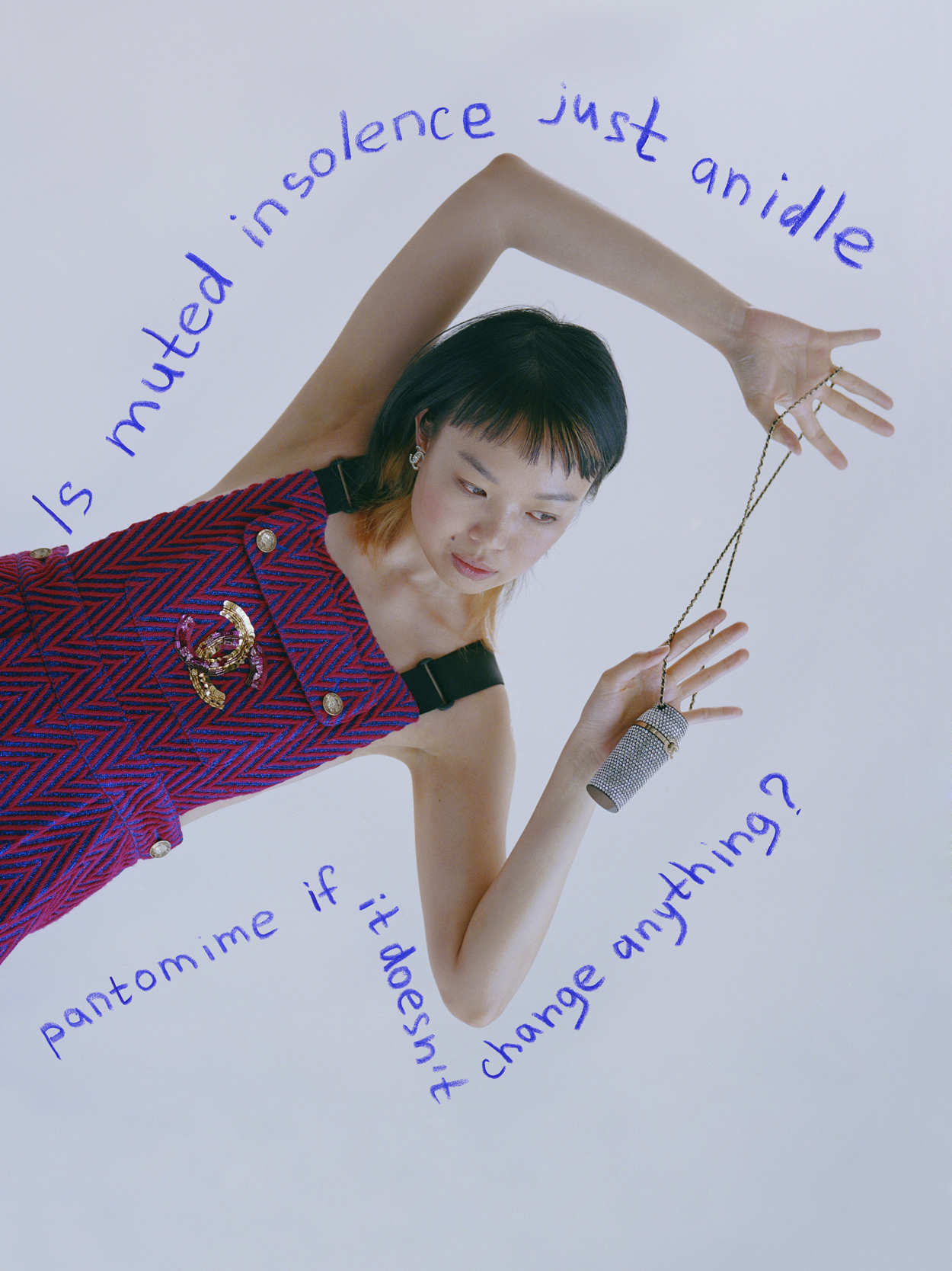
A friendly stranger at East Coast Park is asking Amanda what she does for a living. This time Amanda tries to keep things simple: “I write.” Right away the stranger says: “For The Straits Times?” Amanda is stunned by how few ways there are of being perceived on this island no matter how much work she has put into her attempt to live an autonomous life. The air feels thinned out, despite the humidity. Is this how a spirit is worn down, sliver by sliver? The best and worst part is that the stranger doesn’t have ill intentions. It’s an innocent question. “Fun fact!” Amanda wants to say. “Did you know Singapore’s press freedom index is lower than Russia, Congo and Kazakhstan?” But what does that prove? Will the stranger even blink? Besides, the stranger is an older lady, and Amanda has a soft spot for those, so she tries to keep smiling as she shakes her head, no, she doesn’t work for the state-owned broadsheet. The stranger is still trying to understand the nature of Amanda’s work. Even after all this time, there’s a tendency for it to come across as selfish and frivolous—when the banal reality of being a fiction writer is humbling and committed—so Amanda braces herself as she explains: “I write for myself.” A fighter jet practising for the National Day Parade shoots across the sky, drowning Amanda’s voice out. “Wah!” The stranger admires the jet’s aerial prowess. “Sorry,” the stranger turns back cheerfully. “Who did you say you write for?”
*

